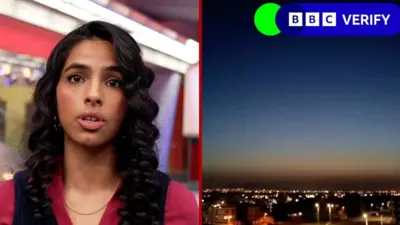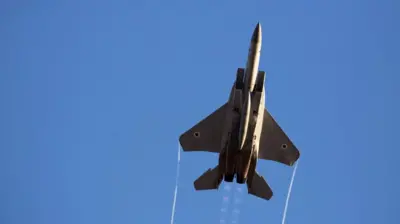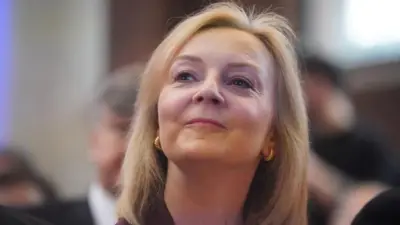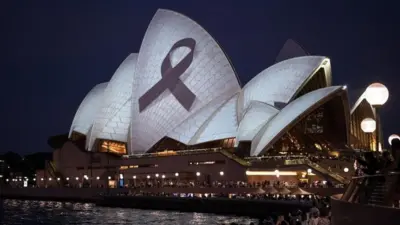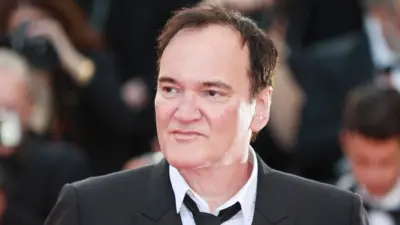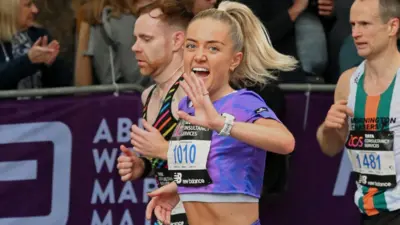We've updated our Privacy and Cookies Policy
We've made some important changes to our Privacy and Cookies Policy and we want you to know what this means for you and your data.
Nicola Sturgeon holds talks with Sinn Féin vice president Michelle O'Neill
Image source, PA Media
Scotland's first minister has held talks with Sinn Féin vice president Michelle O'Neill at her official Bute House residence in Edinburgh.
The meeting came just two weeks after Sinn Féin finished as the largest party in the Northern Irish election.
The two leaders said they discussed issues surrounding Brexit and the ongoing row over the Northern Ireland Protocol.
And they highlighted the "close bonds" between Scotland and Northern Ireland.
Sinn Féin's victory in the election was the first time a party committed to creating a united Ireland had won the most seats at Stormont.
But the assembly is not sitting because the DUP is refusing to support the election of a new speaker as part of its ongoing protest over the post-Brexit trade arrangement known as the Northern Ireland Protocol.
Irish prime minister Micheál Martin met the main parties in Northern Ireland on Friday to discuss the protocol and the political crisis.
UK Foreign Secretary Liz Truss and Irish Foreign Affairs Minister Simon Coveney also met on Friday.
Ms Truss said earlier this week that the government wanted to end the "unnecessary bureaucracy" which had been added to the movement of some goods from Great Britain to Northern Ireland.
She said it would help resolve "the grave situation in Northern Ireland", but would not scrap the protocol.
The government has proposed a bill which would include the removal of regulatory barriers to goods made to UK standards being sold in Northern Ireland and introduce a new dual regulatory regime, which would allow businesses to choose between meeting UK or EU standards.
It came after Prime Minister Boris Johnson said the protocol "is turning into a political problem" that needs to be rectified.
Critics say acting unilaterally could potentially trigger a trade war with the EU.
The basics
- The Northern Ireland Protocol is part of the Brexit deal: it means lorries don't face checkpoints when they go from Northern Ireland (in the UK) to the Republic of Ireland (in the EU)
- Instead, when goods arrive in Northern Ireland from the rest of the UK (England, Scotland and Wales), they are checked against EU rules
- The UK and the EU chose this arrangement because the Irish border is a sensitive issue due to Northern Ireland's troubled political history
Read more: Guide to the Brexit border problem
Speaking after her meeting with Ms O'Neill, First Minister Nicola Sturgeon said this could have "significant and very severe impacts" on businesses and living standards in Scotland.
Ms Sturgeon stressed that the futures of Scotland and the island of Ireland should be treated on their own merits rather than drawing comparisons, but said the Brexit process has "brought to the fore some very fundamental questions" over the system of governance in the UK.
She added: "Scotland, and indeed Northern Ireland - we both voted against Brexit but we are both now dealing with the very negative consequences of Brexit.
"That really brings to the fore that that system of government that's been at play in the UK for some time now is not serving all of our interests.
"You hear these questions in Scotland, you hear them in Northern Ireland. Increasingly, you're hearing these questions being asked in Wales, as well. I don't think these questions are going to go away."
The first minister said concerns raised by US Speaker Nancy Pelosi on the protocol were "not a surprise", as she had expressed similar sentiments when the pair met in Washington earlier this week.
Ms Pelosi said the US Congress would not support a free trade agreement with the UK if continued with "deeply concerning" plans to "unilaterally discard" the protocol, and she urged "constructive, collaborative and good-faith negotiations" in order to uphold peace in Northern Ireland.
Ms Sturgeon also said it was "too much of a stretch" to say that Sinn Fein's success in Northern Ireland strengthened her own case for a second referendum on Scottish independence.
She said people in Northern Ireland would take decisions about their future, as would people in Scotland, so "we've got to be careful about drawing those parallels".
Ms O'Neill said people in Northern Ireland wanted to see the protocol being made to work instead of the "uncertainty and instability" that she claimed the UK government has been engaged in.
She added: "The protocol provides us some mitigation against the worst impact of Brexit, the hardest possible Brexit that's been delivered by Boris Johnson in London and the DUP partners in Belfast.
"I think that it is really, really important that the protocol is made to work and that all sides are engaged in conversation."
Scottish Conservative constitution spokesman Donald Cameron criticised Ms Sturgeon for meeting Ms O'Neill.
He said: "People across Scotland - including those who support independence - will be concerned about Nicola Sturgeon's eager embrace of Michelle O'Neill and Sinn Féin.
"For many, the party's associations will be far from the civic nationalism that Nicola Sturgeon claims to champion, but it seems that the SNP will work with anyone so long as they support the break-up of the UK."
Top Stories
Features & Analysis
Most read
Content is not available
